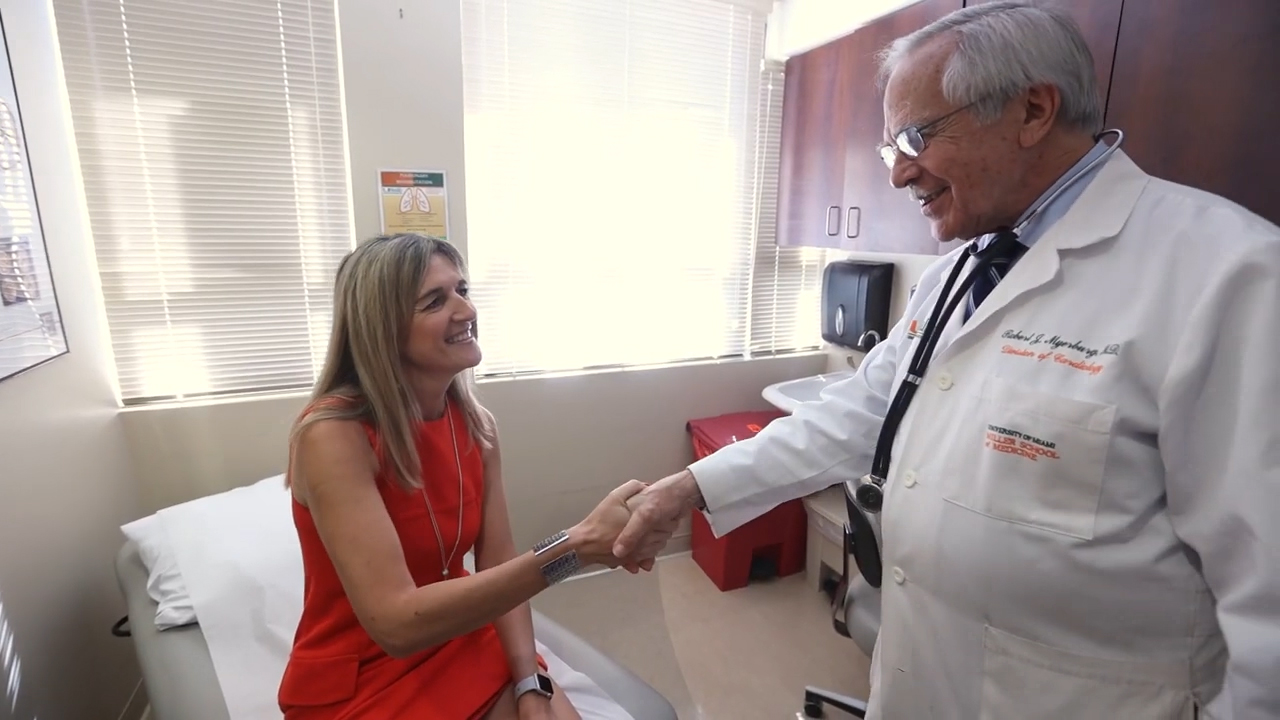Focusing on You: Cardiac Genetics Clinic at UHealth

Dr. Robert Myerburg, a cardiac electrophysiologist at University of Miami Health System, discusses the role of genetic testing in identifying dangerous heart arrhythmias in patients and their families.
VIDEO TRANSCRIPTION
Focusing on you, innovations in modern medicine from your team of experts at UHealth, the University of Miami Health System.
Pam Giganti:
Christelle Caron enjoys being active, but her lifestyle was threatened after a series of fainting episodes in 2015 landed her in the emergency room with a dangerous heart rhythm.
Christelle Caron:
Before being discharged from the hospital, Dr. Myerburg told me, “We have a suspicion that it is ARVD, but to see the diagnosis, then we should do a genetic testing.”
Pam Giganti:
Through genetic testing offered here at the UHealth cardiology clinic, Christelle learned that she had a potentially fatal condition known as ARVD.
Dr. Robert Myerburg:
It falls into the category of life threatening conditions. It has what’s called variable expression genetically, so not everybody that has the gene is going to get the life threatening arrhythmia.
Christelle Caron:
I was surprised altogether that I had this genetic condition because nobody in my family had any incidence of any heart issues.
Pam Giganti:
Genetic testing revealed Christelle’s mother and sister also carry the gene mutation that causes ARVD, a weakening of the muscle in the right ventricle of the heart that can cause dangerous heart rhythms.
Christelle Caron:
So my mom has the gene and she has been also diagnosed with the condition, but has not developed any episodes of ARVD. So her treatment is very different than mine. And my sister has the gene but has not developed the condition.
Pam Giganti:
According to Dr. Myerburg, most people with ARVD should avoid intense exercise. But he and Christelle, who has a surgically implanted defibrillator monitoring her heart rhythms, work together to create an individualized plan that includes friendly tennis matches.
Christelle Caron:
It’s a very personal choice. I decided that whatever happened to me, life doesn’t deter who I become and who I am. Everything I do has been discussed and aligned with my medical team.
Dr. Robert Myerburg:
You have the gene and you have the clinical story that matches up with the gene and you can make more intelligent conclusions and recommendations.
Tags: cardiac care Miami, cardiac genetics, Dr. Robert Myerburg, heart arrhythmias, Miami cardiac electrophysiologist
